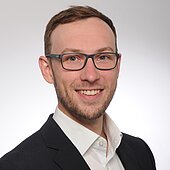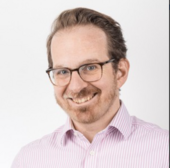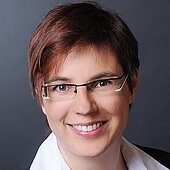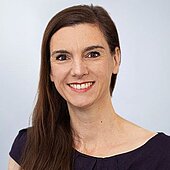Career Session
What career opportunities are there after my PhD?
How can I take the next step in my career?
What can I already do for my professional future during my PhD?
Many of us ask ourselves these questions at some point during the PhD and the answers are not easy to find. The career session at the EUREKA Symposium is meant to help PhD students find their way. We will discuss with guests who have taken different career paths what experiences they have had and what advice they would like to give to the current generation of PhD students.
We are delighted to welcome our guests for the EUREKA! 2025 Career Session

Dr. Thomas Ziegenhals
Senior Director of in vitro Transcription Development at BioNTech SE
Thomas Ziegenhals is a biochemist with a deep passion for RNA research and its applications in medicine. He studied Biology at the University of Würzburg, where he also pursued his PhD in the group of Prof. Dr. Utz Fischer, exploring the role of the miR-26 family in neurogenesis. After a brief postdoctoral period in Würzburg, he transitioned to industry and joined BioNTech as a scientist in RNA optimization and internal contract synthesis. Over the years, he has taken on increasing leadership responsibilities, first as associate director and later as director, shaping BioNTech’s RNA technology platforms. More recently, he has focused on advancing in vitro transcription technologies, where he currently serves as senior director. In this role, he leads efforts to further strengthen and expand the RNA manufacturing capabilities that are central to BioNTech’s innovations.

Dr. Jan Freudenthal
Managing Consultant at adesso SE
Jan Freudenthal earned a bachelor’s degree in Agriculture from the University of Kiel, followed by an M.Sc. in Agriculture at the University of Göttingen. He then began his Ph.D. at the Graduate School of Life Sciences (GSLS) within the Center for Computational and Theoretical Biology, in Prof. Arthur Korte’s evolutionary genomics group. His research focused on decomposing the genomic architecture of quantitative traits, with the goal of predicting drought tolerance in various crop and model species, such as maize and Arabidopsis thaliana.
He completed his Ph.D. in January 2020 and has worked in IT consulting ever since, specializing in machine learning and artificial intelligence. Since January 2025, he has been with adesso—Germany’s largest IT service provider—where he drives AI-driven digital transformation for clients. Additionally, he co-founded GenoBI, a startup offering data and AI services to companies in the agricultural sector.

Prof. Dr. Eva Klopocki
Professor at the Institute for Human Genetics at the Julius Maximilian University of Würzburg
Eva Klopocki studied biology at the University of Ulm from 1994 to 2000. Dissertation on the topic: ‘Expression analysis and functional characterization of two new tumor suppressor gene candidates in breast cancer’ from 2000 to 2003 at metaGen Pharmaceuticals in Berlin, graduating with a Dr. rer. nat. from the Department of Biology at the Free University of Berlin (2004). Part-time Master of Business Administration (MBA) in Biotechnology and Medical Technology at the Faculty of Economics and Social Sciences at the University of Potsdam (2005–2007). From 2003 to 2012, she was a research group leader at the Institute of Medical Genetics and Human Genetics at Charité Universitätsmedizin Berlin. From 2006 to 2012, Eva Klopocki was head of the Array-CGH Laboratory at the Institute of Medical Genetics at Charité Universitätsmedizin Berlin and LaborBerlin GmbH in Berlin. Since October 2012, she has been a professor of human genetics at the University of Würzburg. Eva Klopocki has received scientific awards from the German Society of Human Genetics and the European Society of Human Genetics.

Prof. Dr. Katrin Heinze
Chair of Molecular Microscopy & Head of Core Unit Fluorescence Imaging & Head of Core Unit Research Data Management,
Spokesperson of the Rudolf Virchow Center at the Julius Maximilian University Würzburg
Katrin Heinze is a physicist dedicated to life sciences, chair of Molecular Microscopy. In her research and the Core Unit Fluorescence she develops and provides imaging pipelines to improve resolution in multi-dimensional fluorescence approaches from the single molecule to the whole organ. The large
spectroscopic and imaging data need to be shared, integrated and analyzed. Her lab is supporter and active member of the DFG funded initiative NFDI4 “Bioimage” where standards for imaging data and meta-data management will be developed. In the framework of the DFG-funded comprehensive
research center TR-CRC 240 “Platelets”, she was a principal investigator for the Informatics project. She is currently principle investigator in an imaging project in the TR-CRC 225 “Biofabrication” and the CRC1525 “Cardio-Immune Interfaces” as well as in the initiative of the Hightech Agenda Bayern
“Integrated Spin Systems for Quantum Sensors (IQ-Sense)“.





